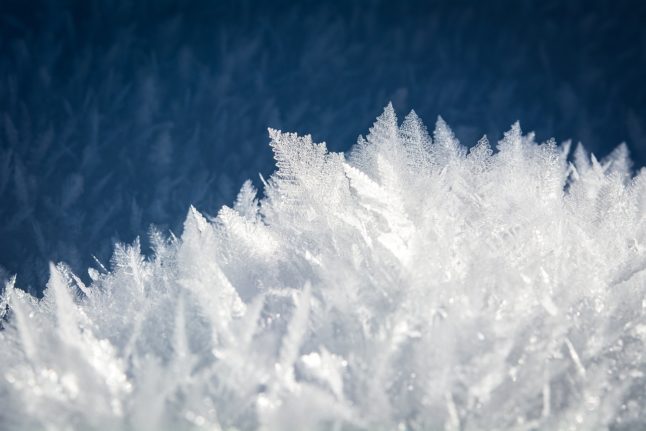Although temperatures in both cities are not expected to drop much below the 0C mark, the wind blowing over the Lake Geneva region accentuates the chill factor, which will feel more like -8 to -12C, meteorologists say.
“Taking into account the weather forecasts for the coming days, Geneva has decided to activate its ‘Extreme Cold Plan’ from Monday January 8th, 2024, and for a minimum of three nights,” municipal authorities said in a press release.
The opening of a new Civil Protection shelter in the city will make it possible to accommodate 80 additional individuals — bringing the total of beds available to those affected by the cold to 581.
As for Lausanne, “it is temporarily increasing its emergency reception capacity by 50 places in the Rouvraie shelter, from Monday, January 8th, 2024,” the city said.
What is the situation elsewhere in Switzerland?
Temperatures at the start of the year are “colder than the norm,” but still remain within the ‘normal’ parameters for the month of January, according to MeteoSwiss weather service.
Also to blame is the wind, which creates a much ‘colder’ feeling.
The freezing overnight temperatures caused a light snowfall in large parts of Switzerland.
This also has had an impact on the condition of the roads, with an increased risk of slipping and falling on ice.
Drivers are impacted by icy streets as well.
What is the forecast?
It will remain cold and largely below zero degrees in the coming days.
Temperatures above the freezing point are not expected until the weekend.



 Please whitelist us to continue reading.
Please whitelist us to continue reading.
Member comments